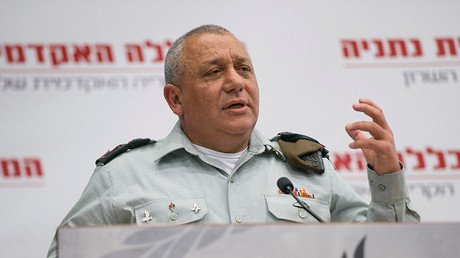Lebanon’s PM returns to Beirut after abrupt resignation while in Saudi Arabia
Lebanese Prime Minister Saad Hariri has finally returned to Beirut as tensions mount in the region over his sudden resignation earlier this month.
Hariri touched down at Beirut's Rafik Hariri International Airport after stopping over in Cairo, where he held talks with Egyptian president Abdel Fattah el-Sisi, and a quick pit stop in Cyprus where he spoke with President Nikos Anastasides, Lebanon’s Naharnet news reports. The politician was met by security forces on arrival.
Prior to his engagement in Egypt, Hariri spent the weekend in Paris, holding talks with French President Emmanuel Macron who is reportedly trying to mediate in Lebanon’s crisis. Before Hariri travelled to Beirut, el-Sisi spoke on the phone with Lebanese President Michel Aoun, and the two leaders stressed the importance of preserving Lebanon’s national unity.
Hariri abruptly announced his resignation in a televised statement from Riyadh on November 4, blaming Iran for having a destabilizing influence in Lebanon and the Middle East and saying that his life was in danger from political opponent, Hezbollah. This led some to speculate the resignation statement had been made under duress while the PM was in Saudi Arabia, a claim repeated by Aoun. Hariri has denied these claims.
'Don’t get too excited about Emmanuel Macron saving Lebanon from the abyss' (Op-Ed by @MartinRJay) https://t.co/lQOqBAe7Vf
— RT (@RT_com) November 21, 2017
Aoun has repeatedly said that he will only accept Hariri’s resignation if he delivers it on Lebanese soil. Riyadh has used the Hariri situation over the past week to target its regional nemeses – Iran and Hezbollah, Tehran’s ally in Lebanon. Both Iran and Hezbollah are accused of interfering in the affairs of the Middle East and supplying missiles to the Houthi rebels in Yemen, who earlier this month targeted an airport near the Saudi capital. To add fuel to rapidly escalating regional tensions, the Chief of Staff of Israel’s military, Lt. Gen. Gadi Eisenkot, said last week that Tel Aviv is ready to share intelligence on Iran with Riyadh.
Amid the turbulence, the Arab League called an emergency meeting in Cairo Sunday, also blaming Iran for destabilizing the region. The Arab alliance also described Hezbollah as a terrorist organization, but stopped just short of threatening any action against either.
On Monday, Hezbollah leader Sayyed Hassan Nasrallah denied all the accusations leveled against the group, especially that of supplying arms to the Houthis, dismissing the charges as “silly” and “completely baseless.” Tehran has also denied its involvement.
The Lebanese president has defended Hezbollah, claiming that his country has been subjected to Israeli “aggression” for decades and had the right to protect itself. Speaking Tuesday, Aoun said Beirut “will not bow to any opinion, advice or decision pushing it towards internal strife,” stressing, that “those who want Lebanon’s welfare must help it immunize its unity because it is its security valve.”
“Were we supposed to disregard the issue of returning our premier to his country, which was a matter of national duty that was imposed on us?… It was a matter of the dignity of a nation and its people, who showed unique national cohesion,”said Aoun in an address to the nation on the eve of Lebanon’s Independence Day.
READ MORE: Lebanese Army placed at ‘full readiness’ to counter ‘Israeli enemy’
In a climate of accusations, counter-accusations, denials and threats, the head of the Lebanese Army ordered the country’s the military to be at “full readiness” to face “the Israeli enemy” at its southern border.













